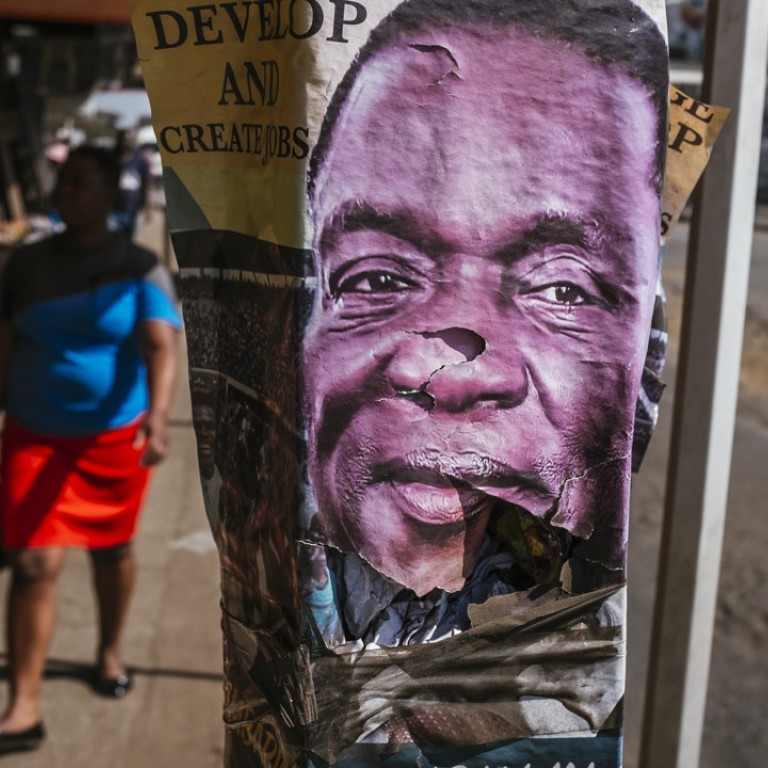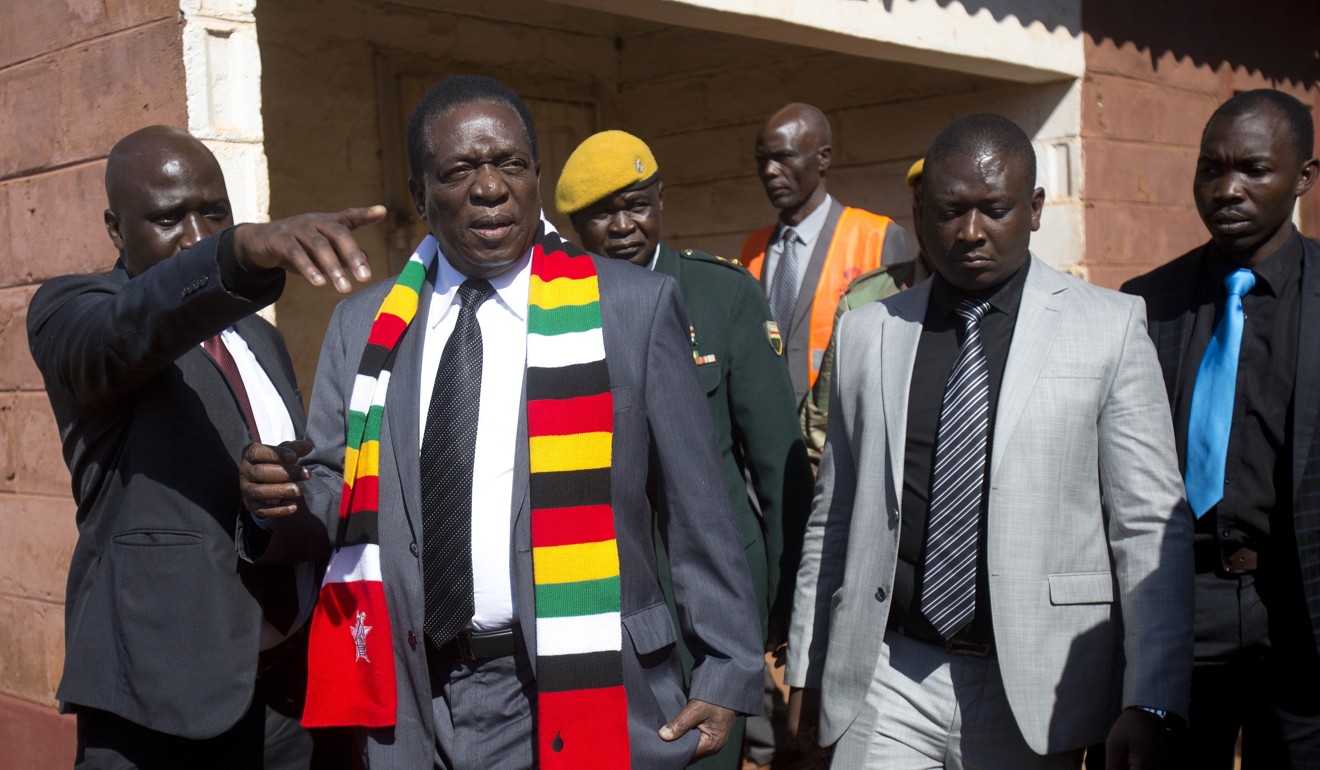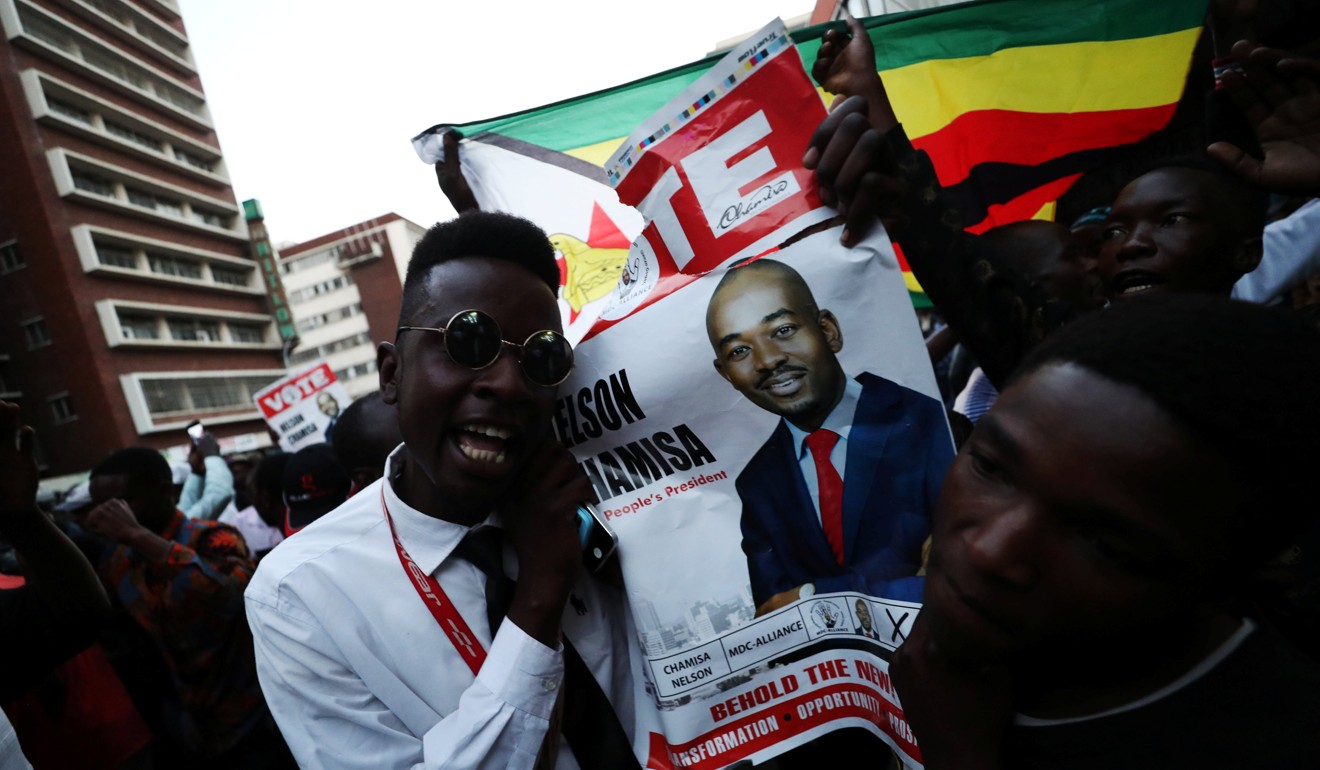
Zimbabwe’s ruling party wins most seats in parliament. But was election fair?
With the campaign and Monday’s vote having largely been peaceful, the focus now shifts to the credibility of the process and whether the results are accepted
EU observers on Wednesday criticised the Zimbabwe elections for being held on an “un-level playing field” as the opposition Movement for Democratic Change (MDC) protested against alleged widespread fraud by the election authority and ruling party.
Zimbabwe’s ruling party won the majority of seats in parliament after sweeping rural constituencies by huge margins, official results showed, setting the stage for President Emmerson Mnangagwa’s victory.
However, the EU mission found an “improved political climate, but [an] un-level playing field and lack of trust in the process,” it said in a statement.

“Observers reported … efforts to undermine the free expression of the will of the electors through inducements, soft intimidation, pressure and coercion against prospective voters to try to ensure a vote in favour of the ruling party,” added EU chief observer Elmar Brok at a press conference.
“While political rights were largely respected, there was concerns regarding the environment for the polls [and] the misuse of state resources.”
The Zimbabwe Electoral Commission results showed Mnangagwa’s ZANU-PF cruising to a big majority after picking up 109 seats against 41 for the MDC. Another 58 seats were yet to be declared.
The House of Assembly of Parliament has 210 seats and ZANU-PF would need to win 30 more to have a two-thirds majority that would allow it to change the constitution at will.
Voters in Zimbabwe pick a presidential candidate based on their party affiliation and the trend in the parliamentary election was expected to continue when results for the president are announced this week.
While political rights were largely respected, there was concerns regarding the environment for the polls
The opposition MDC, led by Nelson Chamisa, won in most urban centres, where it enjoys majority support.
The MDC accused the election commission on Tuesday of deliberately delaying results of this week’s vote to favour the ruling party, reporting irregularities in the first poll since the removal of Robert Mugabe in a bloodless November coup.
With the campaign and Monday’s vote having largely been peaceful, the focus now shifts to the credibility of the process and whether the results are accepted.
The jury is still out on whether the contest was fair, with observers noting a number of flaws and the opposition alleging there’d been a deliberate attempt to frustrate and suppress urban voters.
Mnangagwa, 75, and Chamisa, 40, are the stand-out favourites in the presidential race, which featured 22 candidates.
That outcome will be announced once results from all provinces are received and verified, Priscilla Chigumba, the chairwoman of the electoral commission, said. Final results must be released by August 4.
Zimbabwe’s 270-seat National Assembly comprises 210 directly elected members and 60 women chosen via proportional representation.
It also has an 80-seat senate, with 60 members elected via proportional representation, 18 positions reserved for traditional leaders and two for candidates with disabilities.
ZANU-PF previously controlled 196 seats in the assembly seats and 57 in the senate.
Chamisa, a lawyer and pastor who took control of the MDC after the death of its founding leader Morgan Tsvangirai in February, said on Tuesday that based on his party’s own count of unofficial results from more than 90 per cent of the 10,985 polling stations, the MDC was “winning resoundingly” and ready to form the next government.

The ruling party forced Mugabe to resign in November, when the military briefly seized control of the country and replaced him with Mnangagwa, his former deputy and spy chief.
Whoever wins, the vote will have to administer a broke Treasury unable to service its loans or take out new ones, leaving little scope to improve government services, rebuild crumbling transport links and meet a plethora of other election pledges.
The Zimbabwe Election Support Network, an association of 34 civil rights and religious organisations, said while the political environment was calm and peaceful, the ruling party utilised state resources to campaign, used aid to force people to vote for it and enjoyed more favourable media coverage.
It also found the final voters’ roll was released too late to analyse it, the electoral commission dispatched more voting kits to rural areas than urban ones and the electoral laws hadn’t been harmonised with the constitution.
“Concerns still remain about the independence of the ZEC amid executive interference in key electoral processes,” Andrew Makoni, the chairman of the network, which deployed about 6,500 observers, told reporters in Harare on Tuesday. “At this juncture, we have not yet made assessment as to whether this was a free and fair election.”
Chigumba said voting proceeded peacefully and went well overall, with turnout ranging from 60 per cent to 80 per cent in areas where the data was available. She assured Zimbabweans that the vote wouldn’t be rigged.
“We will not subvert the will of the people. Whatever the result is is exactly what will be announced,” Chigumba told reporters in Harare. “We have not received any official complaints from any political party.”
Additional reporting by Agence France-Presse, Reuters, Bloomberg
